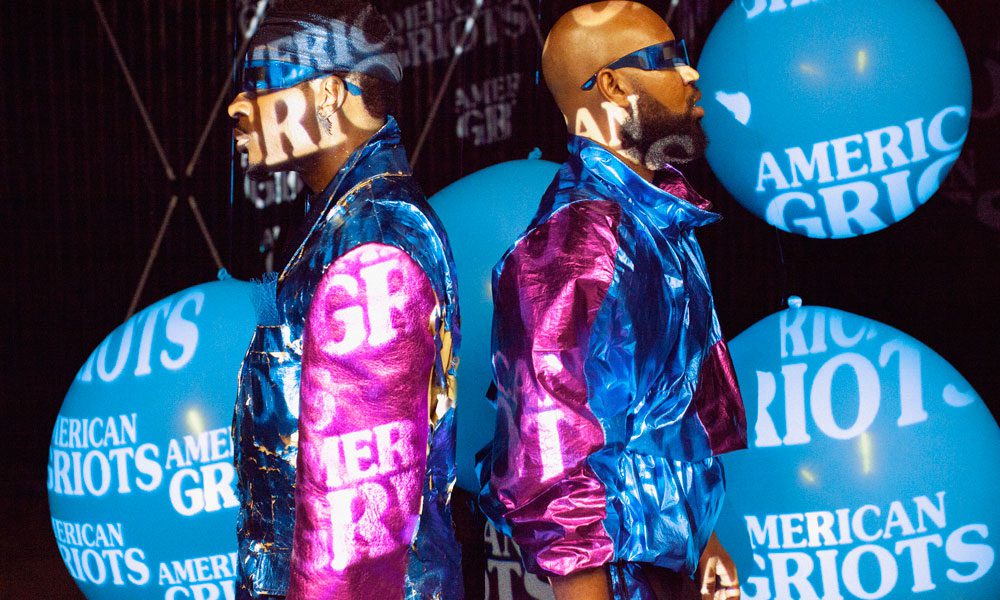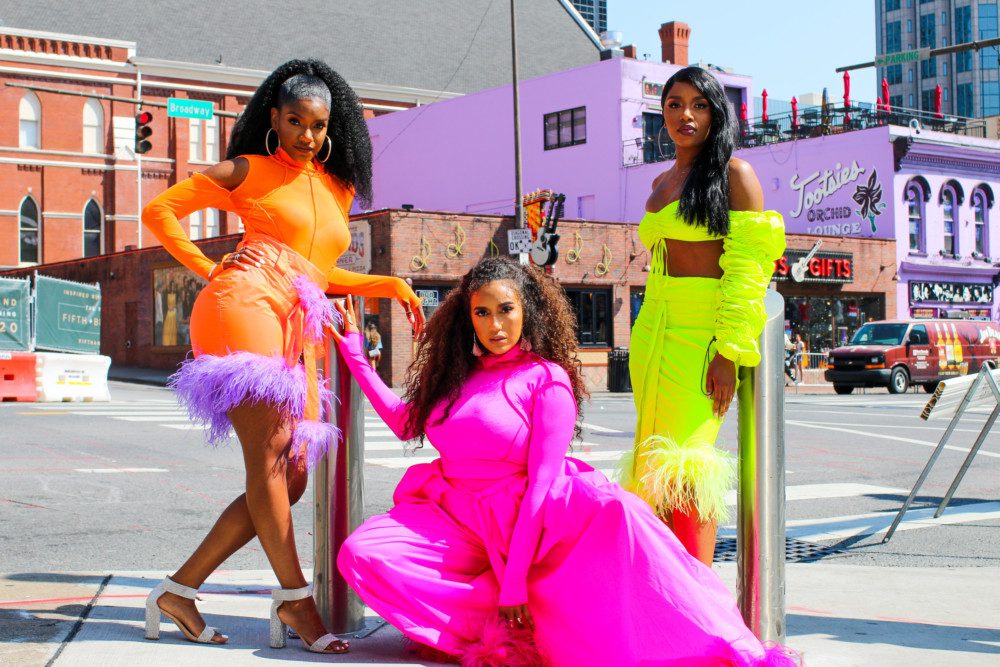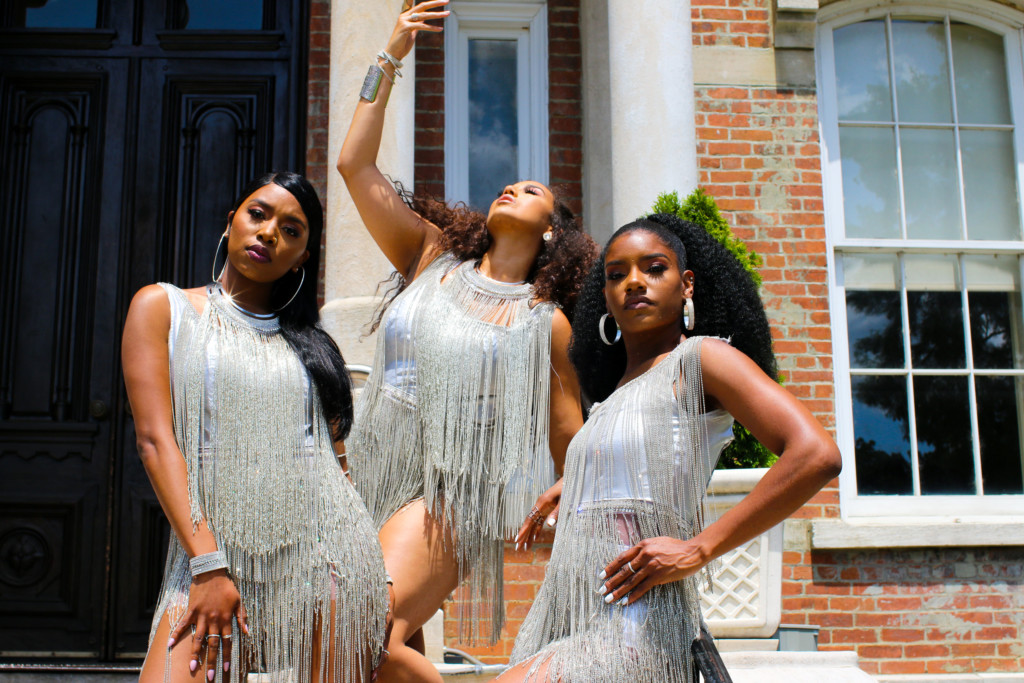
A “griot” is defined as an oral storyteller in West Africa, the roots of the tradition tracing back centuries. Nashville-based duo Louis York not only bring this tradition into the modern era with their debut album, American Griots, but prove they’ve long been griots themselves.
The journey begins with Claude Kelly and Chuck Harmony, Grammy nominated songwriters and producers who spent more than a decade writing era-defining pop hits (Kelly wrote “Party in the U.S.A.” by Miley Cyrus and Bruno Mars’ “Grenade,” while Harmony penned Rihanna’s “Russian Roulette” and produced Ne-Yo’s six-time Grammy nominated album, Year of the Gentleman). After breaking away from the grind of the mainstream music industry, they created Louis York and launched their own artist collective, Weirdo Workshop, in Franklin, Tennessee (just outside of Nashville) in 2017. Deriving their namesake from Kelly’s native New York and Harmony’s home city of St. Louis, Louis York introduced themselves as a genre-defying act with an important message to share on a succession of EPs: 2015’s Masterpiece Theater – Act I, 2016’s Masterpiece Theater – Act II, and finally, Masterpiece Theater – Act III, released in 2017.
But with the turn of the new year in 2019, the duo knew it was time to create a comprehensive body of work in order to evolve, setting their sights on a debut album. As they began writing songs and developing themes for the impending project, Kelly and Harmony discovered the word “griot” – a traveling musician, poet or performer who would visit the villages of West Africa and share stories of the people and culture through art. “That part really resonated with us because it felt like there was an ancestral tradition to why music and soul music and this mission will always feel so familiar,” Kelly tells Audiofemme. “That was a beautiful thing to embrace.”
The album reflects a tapestry of the experiences, frustrations and lessons they’ve gathered through their journey, reclaiming the griot’s mission of transforming valuable life lessons into art that not only entertains, but instills education, intellect and spirituality. “We’re asking more questions than we’re giving solutions,” Harmony says of the project. “The songs go different places and take on different twists and turns in ways that I think a lot of people now don’t think fans and consumers can take, but we don’t buy that. We know that music has always been adventurous and progressive and fun and poetry, that’s what we fell in love with when we first came into it,” Kelly describes. “These are all soul songs, each one is kind of a realization for us.”
Louis York called on a team of Nashville griots to help them share these realizations. Caroline Randall Williams, an award-winning poet and co-author of NAACP Image Award winning book Soul Food Love, opens the project with her “piercing” voice, as Kelly notes, on an original poem that proclaims over a groove of horns and drums, “this, an American story / a fists up story / an our power story.” Her moving words take shape again on the reprise of “Teach Me a Song,” the duo’s duet with country star Jimmie Allen, while The Shindellas, the powerhouse trio founded under Weirdo Workshop, follow in their footsteps on “No Regrets.” The ’80s style electro-funk melody doesn’t disguise the uplifting lyrics that encourage self-love and personal freedom, and The Shindellas’ glistening harmonies shining alongside Kelly’s voice as they declare, “I want the world to know / you don’t have to be alone / we don’t have very long / so love anyone you want.” “That part was an important message, so we chose to repeat it over and over again so it could be drilled in people’s heads,” Kelly says.
For Harmony, the album’s profound identity lives in “I Wonder.” Originally released on Masterpiece Theater – Act I as an eclectic R&B number titled “Nerds,” Louis York give the song a new identity on American Griots. Inspired by hymns and Negro spirituals, “I Wonder” intertwines spoken word poetry, jazz, hip-hop and R&B to ponder how Civil Rights pioneers Martin Luther King, Jr. and Malcolm X would perceive the world today. The almighty voice of opera singer Patrick Dailey unites with Harmony’s cinematic production of strings and booming drums to elevate the compelling notion, “I wonder / if Martin was alive now / would he be proud? / I wonder / if Malcom was alive now / would he be proud?” “It’s such a vital part of our social message and it’s a missing part musically in pop culture,” Harmony explains. “It feels like it’s encompassing all of what African Americans have contributed artistically to pop culture, and still sounds futuristic,” Kelly remarks, calling Dailey’s presence a “stand alone moment.” “We wanted to feel reverent, but we also wanted it to feel like it was the best of who we are.”
The griot tradition is in capable hands as Louis York continue on an artistic journey that finds them channeling expression, attention to detail, honesty and true musicianship into their craft. These elements reward them with a true sense of freedom, the liberating gift they pass on to those who embrace American Griots. “With us spilling our guts and pouring our hearts on this album, we’re hoping that listeners will have a revelation, which is deeper than inspiration,” Kelly says of the most “complete” body of work they’ve created in their careers. “This album is also a reminder to them that this is what freedom can sound like. Now take that same feeling and apply it to yourself.”
“The only thing that we can offer people is love and happiness and having fun and being introspective. But at the end of it is love,” Harmony observes. “That’s what the world needs.”
American Griots is available on Oct. 18.



